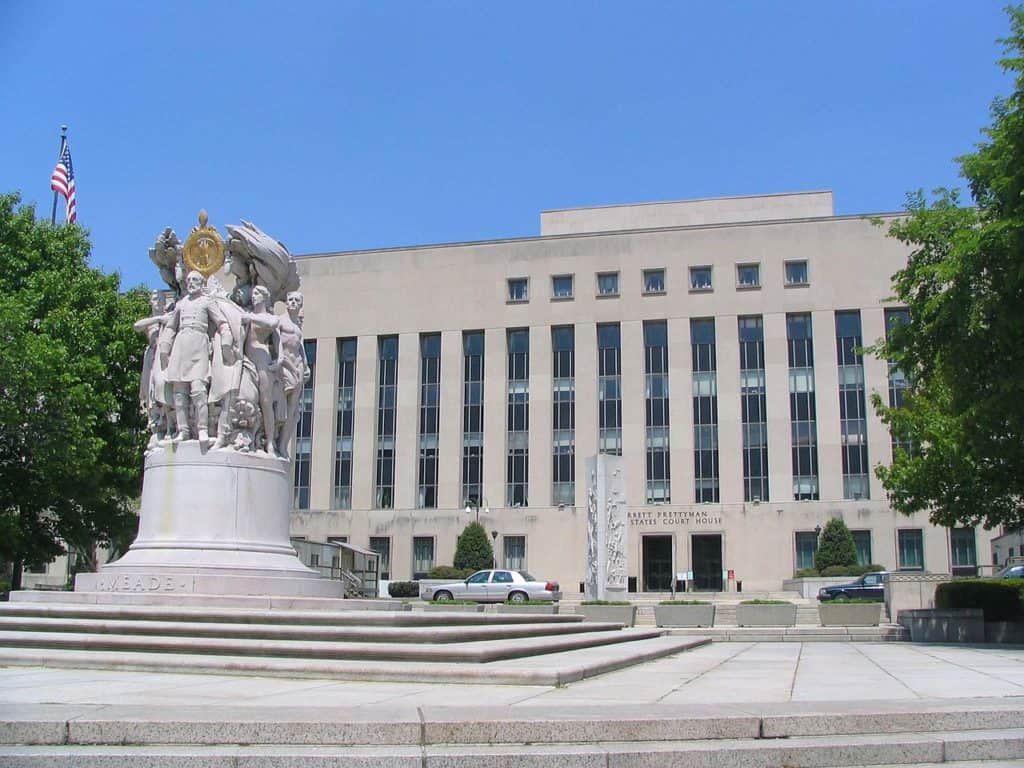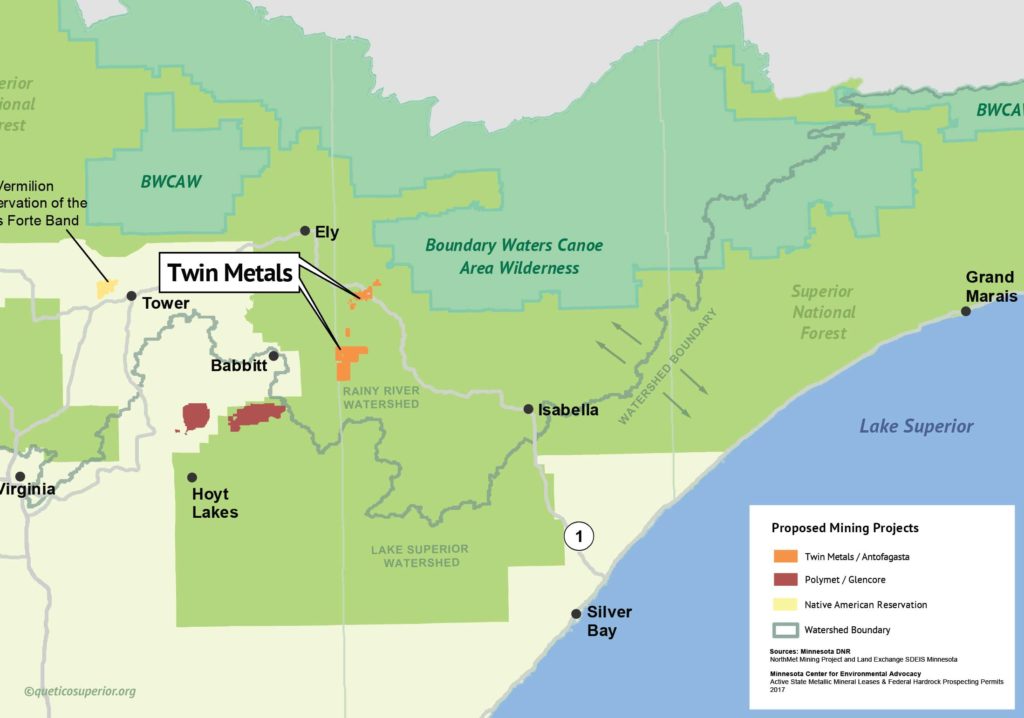
(Photo via Wikipedia, credit Phyzome)
Environmental groups have added a new complaint to their lawsuit about how the federal government decided to renew mineral leases for Twin Metals. The groups say Reps. Pete Stauber (MN-8) and Tom Emmer (MN-6) exerted “undue influence” on Forest Service personnel. Stauber and Emmer have been staunch proponents of the Twin Metals copper-nickel mine proposal, which would be located near the Boundary Waters Canoe Area Wilderness. Wilderness advocates fear the project could cause pollution and otherwise degrade the popular wilderness.
The new complaints, added as amendments to a suit filed in May, say that documents received through Freedom of Information Act (FOIA) requests show how Stauber and Emmer pushed the Forest Service to consent to lease renewals issued by the Bureau of Land Management.
The Forest Service does not manage the leases, but was required to consent to them, and could demand certain requirements in the leases to protect natural resources.
“Clear and simple, Congressmen Stauber and Emmer pressured the Forest Service to break the law and forfeit its ability to protect the Boundary Waters,” said Chris Knopf, executive director of Friends of the Boundary Waters Wilderness, one of the plaintiffs in the case. “The Forest Service, which had voiced grave concerns over the proposed copper-sulfide mine in the past, was pressured into submission, shirking its responsibility and furthered the interests of a foreign-owned mining company.”
Emails obtained by the FOIA request show staff members of both Congressmen contacted Forest Service officials in early 2019 advocating for the agency to consent to lease renewal, and requesting meetings to discuss the matter.
“I just wanted to touch base on the Twin Metals situation,” wrote a Stauber aide. “The company is getting increasingly concerned about the stipulations put forward by the Forest Service on the up or down vote they require for mineral lease renewals every ten years. Both Reps. Emmer and Stauber are increasingly concerned that these stipulations could deter Twin Metals from making further investment in the area and slow down economic development in turn.”
Following the emails, the Representatives met with the Forest Service officials, and the complaint alleges they pressured the agency to drop any stipulations for the lease renewals. About two months later, the Bureau of Land Management renewed the leases, with the Forest Service’s consent, and few restrictions. The decision included a change to the leases that essentially removed the Forest Service’s ability to object to future renewals.
The actions marked a major reversal of previous Forest Service policy and actions. In late 2016, under the Obama administration, the Forest Service concluded that renewal of the two Twin Metals leases posed a risk of irreparable harm to the Boundary Waters. The Obama administration refused to renew the leases, but the decision was reversed by the Trump administration.
“When a decisionmaker ‘suddenly’ reverses course or reaches ‘a weakly-supported determination’ after being pressured by Congress, courts may infer that undue political pressure ‘may have caused the agency to take action it was not otherwise planning to take,'” the complaint says, citing legal precedents.
The lawsuit says the Forest Service offered no explanation for why it reversed its position on the leases, and did not consider restrictions that would have protected the Boundary Waters.

The plaintiffs say it was only lobbying by Antofagasta PLC (the Chilean company that owns Twin Metals) and by members of Congress that persuaded the agency to reverse itself.
“Federal agencies are required by law to make reasoned decisions based on the merits — the facts, science, and the law, and this perversion of agency decision-making corrupts that process,” said Tom Landwehr, Executive Director of Northeastern Minnesotans for Wilderness and the Campaign to Save the Boundary Waters, another plaintiff in the case.
The environmental groups and a coalition of area businesses are asking the U.S. District Court of D.C. to intervene. The lawsuit seeks a ruling that the Forest Service’s consent to the lease renewal was arbitrary and capricious, that the Bureau of Land Management violated federal environmental laws in renewing the leases, and asks the court to overturn the decision.
More information:
- Amended complaint (PDF)
- New complaint filed in Twin Metals lease case – The Timberjay
- Illegal actions are clearing the way for mining near the BWCA – Friends of the Boundary Waters Wilderness
- Amended complaint alleges undue political interference by Congress in Twin Metals lease renewals that threaten the Boundary Waters Wilderness (PDF) – Campaign to Save the Boundary Waters

